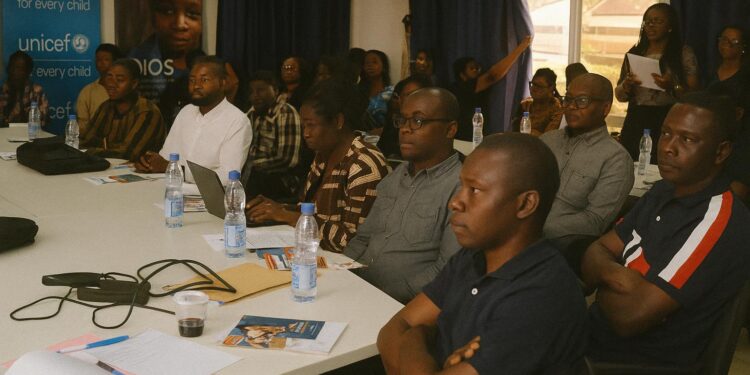Policy Momentum in Brazzaville
In a training room overlooking the Congo River, senior health officials closed an intensive four-day workshop devoted to a single objective: translating a harmonised package of adolescent sexual and reproductive health services into everyday clinical routines. The event, praised by Director Michèle Mountou, signals quiet acceleration.
Congolese authorities, joined by UNFPA advisers and bilateral donors, agreed to integrate the new service bundle into the forthcoming national strategic plan. While the country already offers youth-friendly corners in public clinics, participants insisted on standardised protocols ensuring parity between Pointe-Noire and Cuvette villages.
Global Guidance, Local Realities
Congo-Brazzaville aligns its approach with the African Union’s 2017 Roadmap on Harnessing the Demographic Dividend, which emphasises adolescent health as a prerequisite for economic diversification. Experts from the WHO regional office reminded the workshop that preventable teenage pregnancies still account for one in eight maternal deaths in Central Africa (WHO).
Yet implementing global standards inside over-stretched rural dispensaries is no small task. Dr. Alphonse Ndzouba, a district physician from Likouala, explained that adolescent girls frequently travel 40 kilometres for contraception, only to meet stock-outs. “We need supply chains as reliable as our slogans,” he quipped during a breakout discussion.
Cultural filters compound logistics. A recent UNICEF survey found that 62 percent of Congolese parents preferred abstinence-only messaging, limiting frank dialogue at home (UNICEF). Facilitators therefore tested narrative techniques drawn from neighbouring Rwanda that blend scientific facts with references to family cohesion considered highly resonant among Kongo and Téké communities.
Financing and Diplomatic Coordination
Funding remains the hinge on which ambition turns. The Ministry of Health estimates that rolling out the harmonised package nationwide will cost 11 million dollars over three years. The amount is modest by regional standards, yet partners seek clarity on disbursement flows to departmental health bureaux before committing tranches.
Brazzaville’s diplomats frame the initiative as part of the country’s 2022-2026 National Development Plan, which courts Gulf and Asian investors. “Healthy youth translate into a productive workforce attractive to manufacturers,” noted Economic Cooperation Director Rodrigue Okouya, hinting that concessional health financing could be paired with future industrial projects.
International actors appear receptive. France’s Expertise France, Germany’s GIZ and the World Bank’s Global Financing Facility all dispatched observers. Privately, one European development attaché described the proposal as “fiscally disciplined” compared with past vertical programmes that ballooned. Still, blended finance models will require parliamentary oversight to preserve public trust.
Digital Platforms and Youth Agency
Beyond ministerial budgets, the workshop spotlighted social media tools embraced by Congolese teenagers. Platforms such as TicTac Ados, Hello Ado and U-Report field thousands of anonymous questions monthly, according to UNICEF country data. Algorithms route queries to vetted counsellors inside twenty-four hours, a latency unrivalled by some clinics.
Speakers argued that digital rapport can soften clinic visits. “If a chatbot explains emergency contraception in Lingala at midnight, the girl is likelier to seek dispensary care the next day,” observed youth parliament leader Charly Babin Mbemba. His comment drew nods from midwives, many of whom curate WhatsApp groups.
Still, connectivity gaps persist outside urban centres. The national telecom regulator reports that just 38 percent of households in Sangha enjoy reliable 3G coverage (ARPTC). Health officials pledged to experiment with solar-powered routers at community schools, echoing a strategy deployed last year for malaria surveillance with notable success.
Metrics, Accountability and the Road Ahead
Measuring impact surfaced repeatedly. Participants endorsed uniform reporting templates that capture consultations, contraceptive uptake and incidence of gender-based violence by age cohort. Data will feed the District Health Information System-2, already used for immunisation dashboards, limiting the burden on frontline nurses accustomed to multiple overlapping forms.
The workshop also urged a bolder communications strategy. A 2021 Afrobarometer poll showed that 71 percent of Congolese trust radio newscasts over social networks. Accordingly, the Ministry plans to syndicate weekly call-in shows where medical students answer queries alongside popular musicians, hoping to destigmatise reproductive vocabulary without moralising.
Civil society groups welcomed the plan yet requested clearer feedback loops. “We submit quarterly field reports but rarely see aggregated figures,” said Clarisse Oba, coordinator of the NGO Fille-Avenir. Health Directorate officials promised to publish a semi-annual scorecard on the ministry’s website, a modest nod to open-data practices.
For the government, success would reinforce its broader social contract. President Denis Sassou Nguesso consistently links youth welfare to national stability, and the new package aligns with his 2021 campaign pledge to “leave no one at the margins of progress”. Observers note the narrative dovetails with continental Agenda 2063 priorities.
Implementation now shifts from conference halls to consultation rooms, river barges and internet chat windows. Whether vaccines, textbooks or family-planning pills, Congo’s experience shows that standards matter only when the last kilometre barrier falls. The harmonised package enters that test phase with political capital, donor interest and youthful expectancy.












































